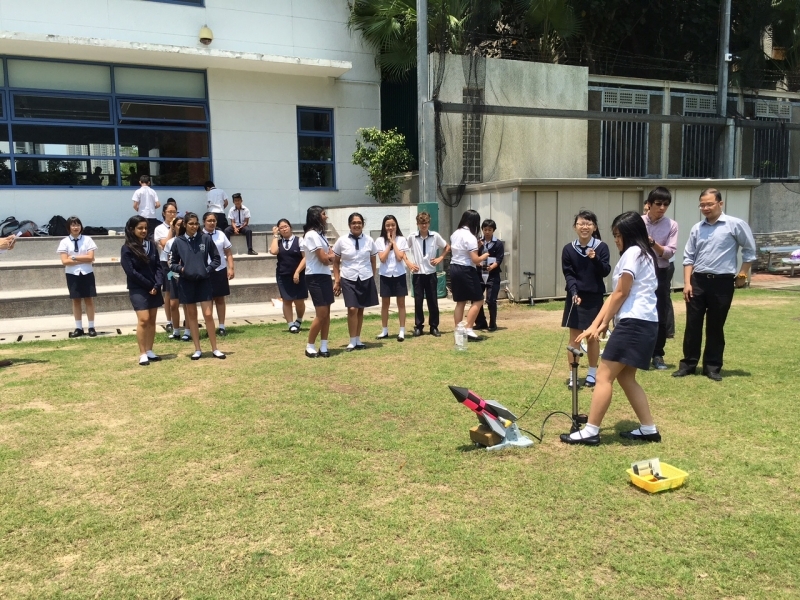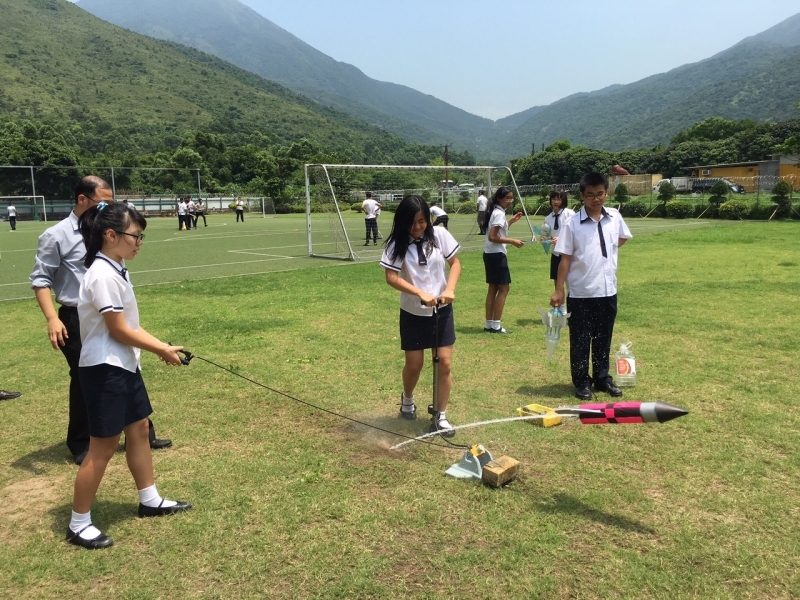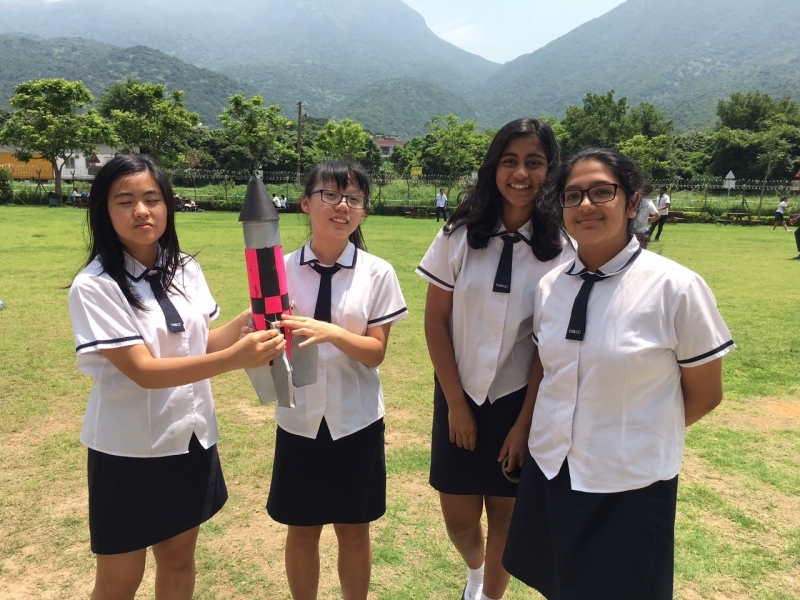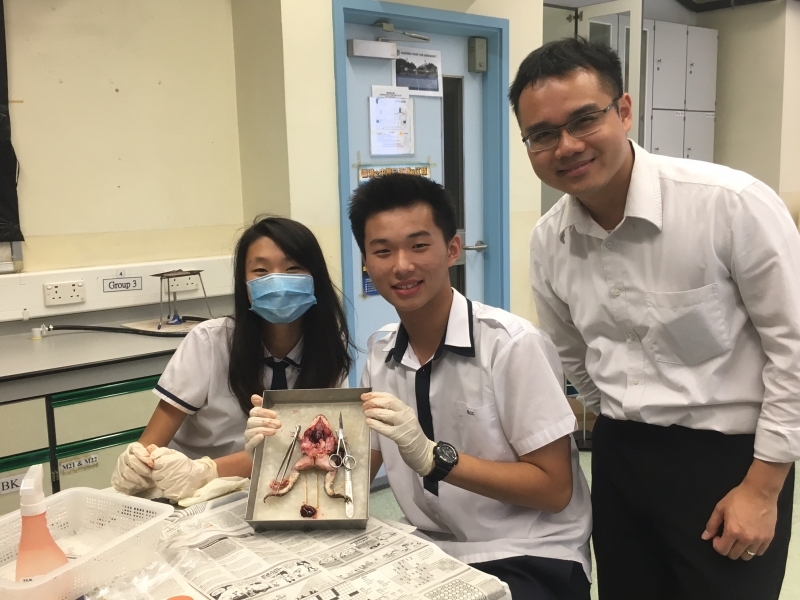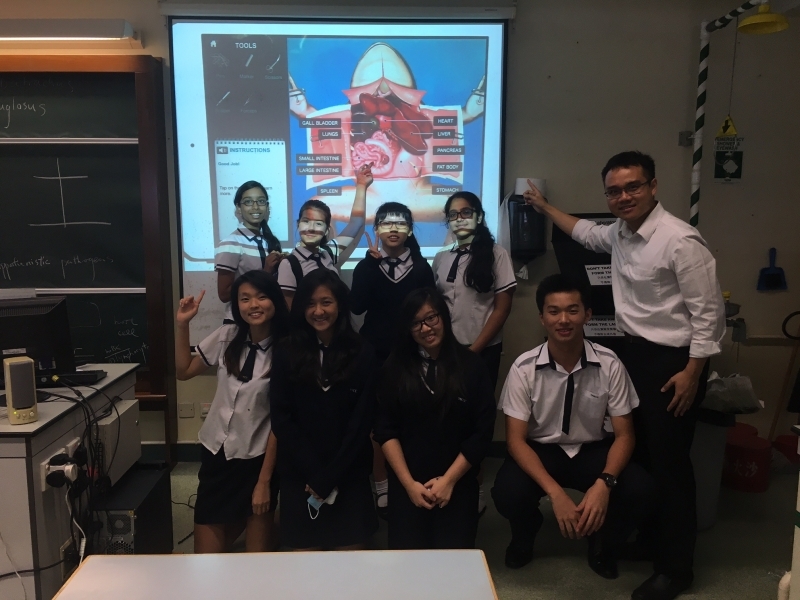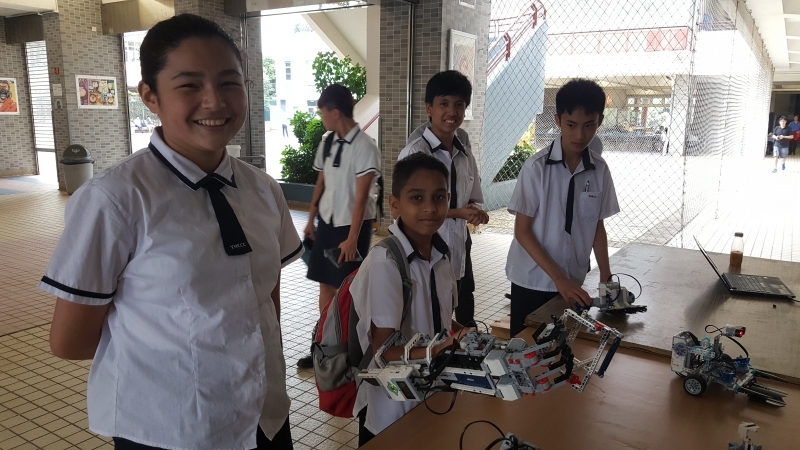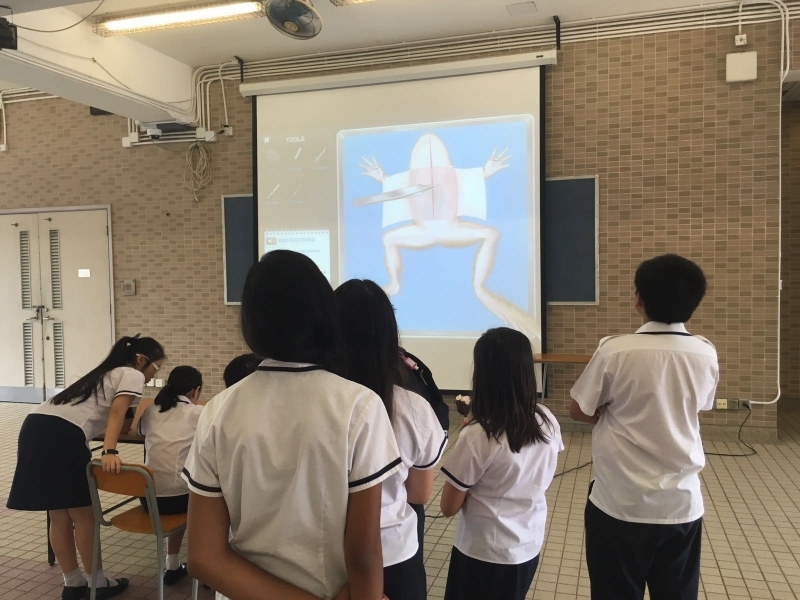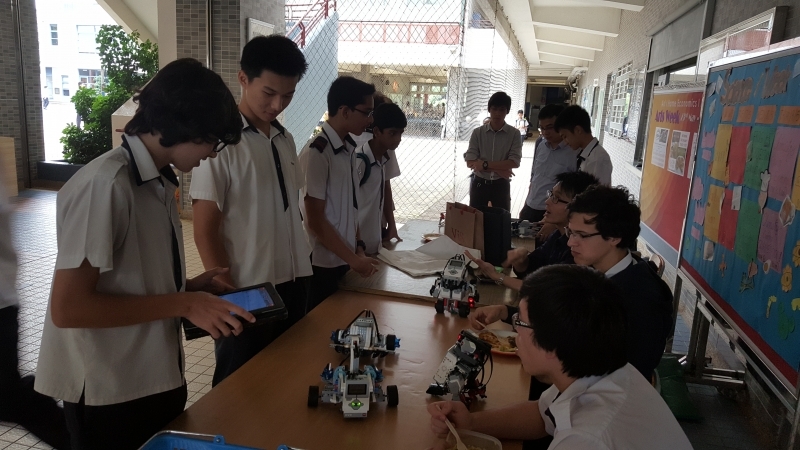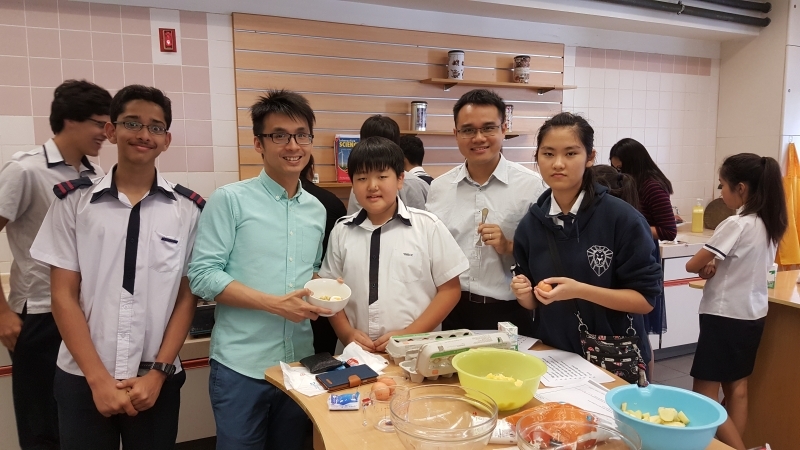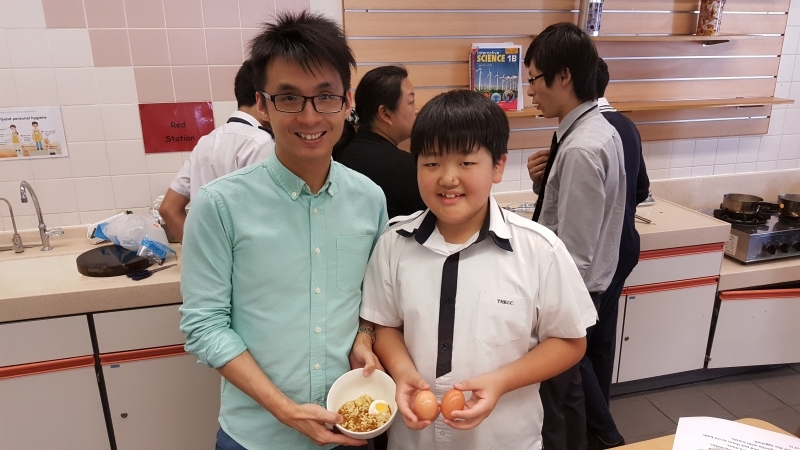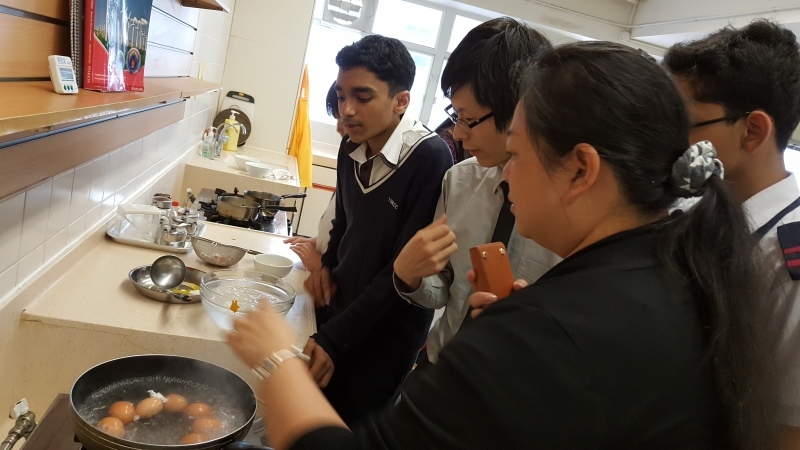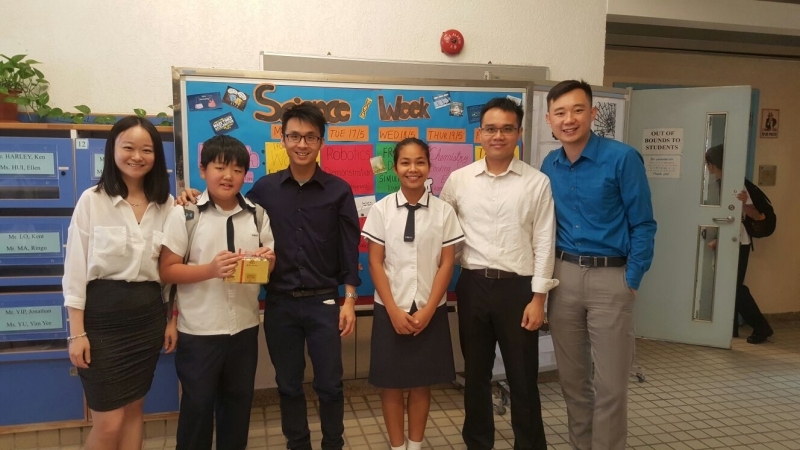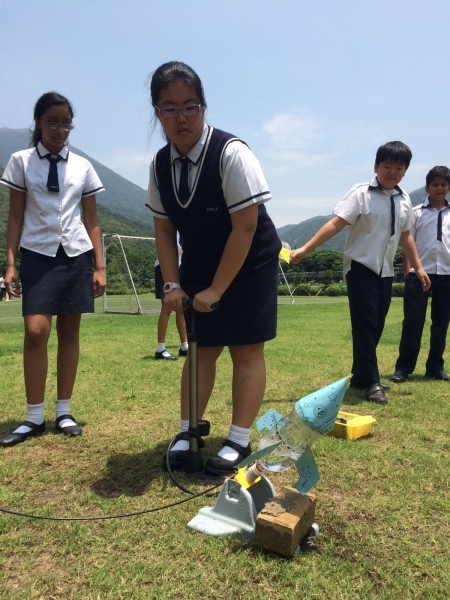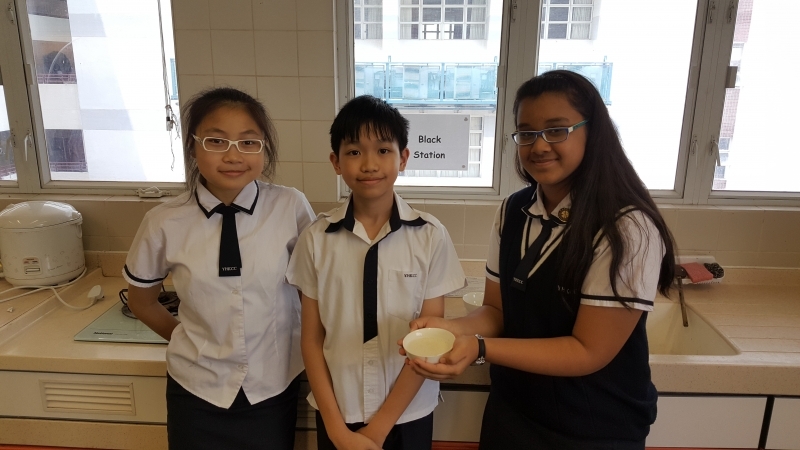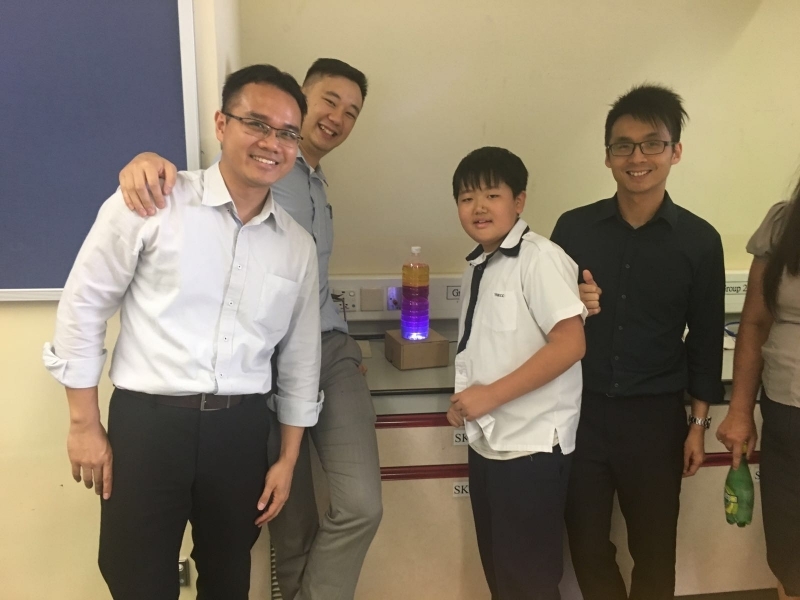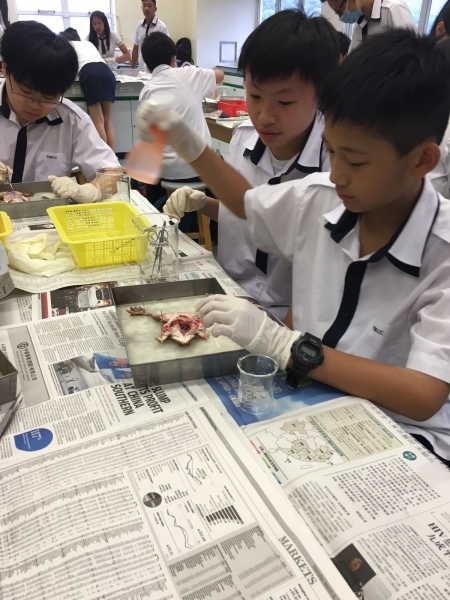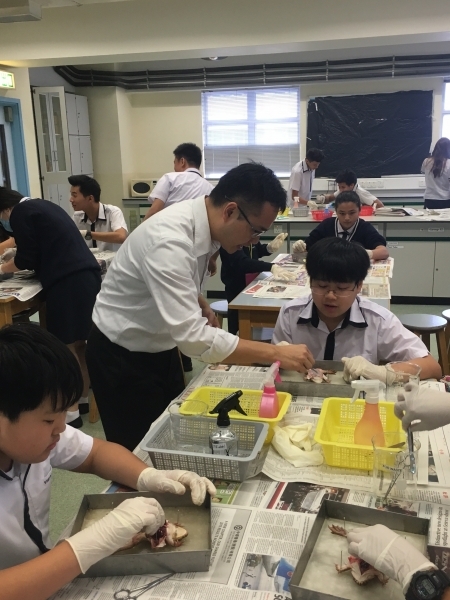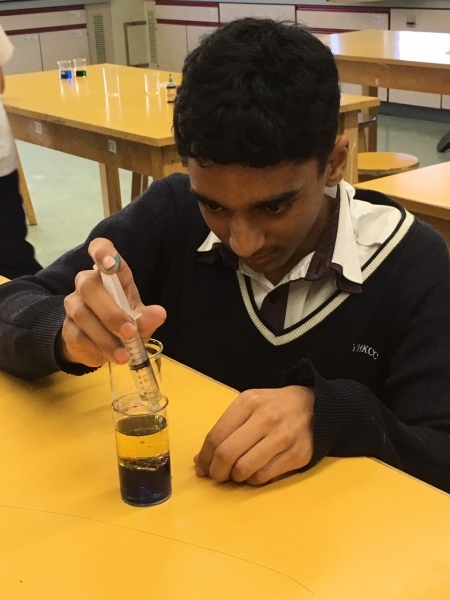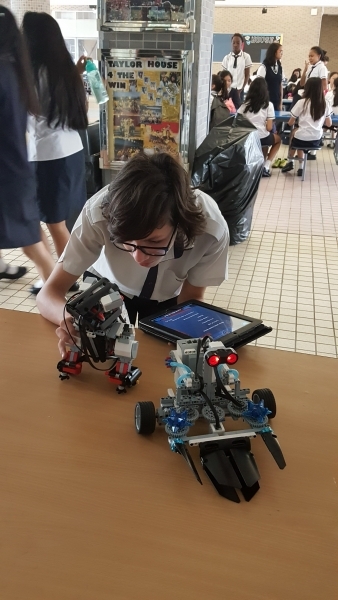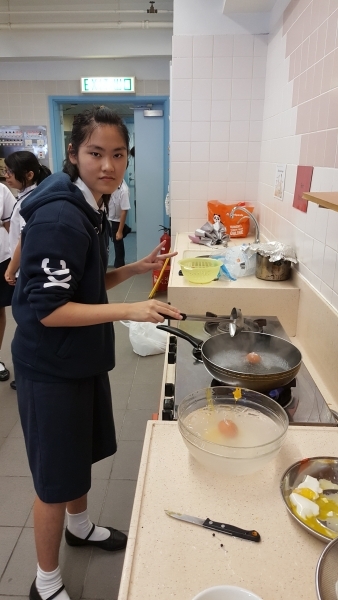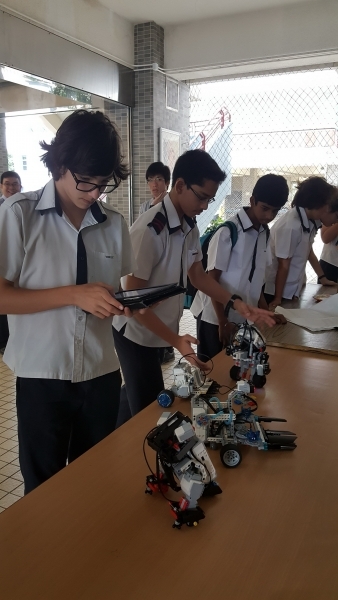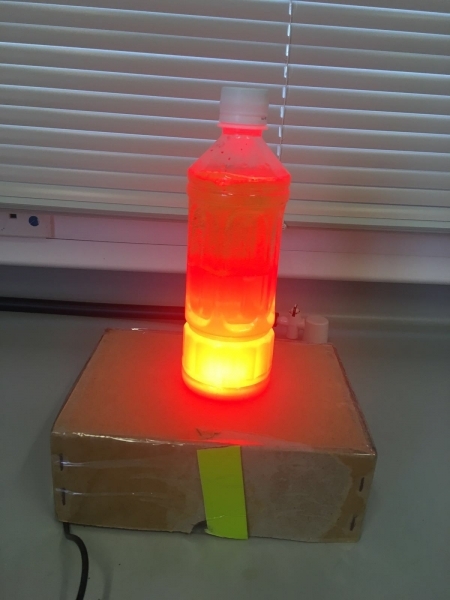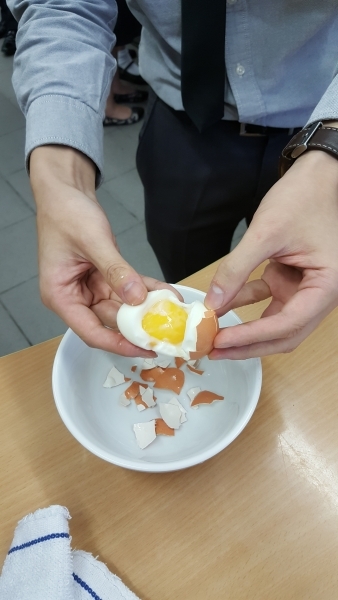Science Week
Science is related to our daily lives. By studying science, we learn critical thinking, analytical skills, cause and effect relationships, and how to explain certain phenomena have we observed. In order to let the students know that learning science with fun is not just restricted to the classroom, the Science Department organizes the Science Week for our students once a year.
This year, we incorporated various new and fascinating activities which covered all areas of Science. The activities were organized by IS, Chemistry, Physics and Biology teachers. The following are the highlights of the activities:
IS Activity
Lunch Time: Water Rocket Competition
During lunch time, the best performing team from each Form 2 class brought their refined water rocket for the final competition. Students showed great enthusiasm in the preparation work, design of their water rockets and also the aerodynamics consideration. Awards were presented to students as follows:
Most Powerful Water Rocket Award and the Best Design Award
|
2nd Powerful Water Rocket Award
|
After School: Rainbow Tube and Lava Lamp Workshop
The after-school Rainbow tube and Lava Lamp workshop in the IS Lab was welcome by a large group of junior form students. Students were taught how to produce both rainbow tube and Lava Lamp based on various science concepts.
- Physics Activity
Robotics Demonstration
On 17th May, a group of Form 2 to Form 3 Physics students demonstrated the robots they had built using LEGO Mindstorm EV3 to other fellow students in the cover playground during lunch time. Five Robots were built in total and they explained to the students how they had used different electronic and mechanical components to build the robots and how they had written programs to control the movement of the robots. Students even got the chance to operate the robotic arm to complete in different tasks through an i-pad .
A lot of students participated in the activity with great interests in Robotics and the related science.
Pressure Challenge
On 17th May, eight teams of two students participated in the “Pressure Challenge” after school in the Physics Laboratory. They had to complete 3 tasks making use of atmospheric pressure within a fix period of time.
Task 1: To inflate a balloon inside a bottle
Task 2: To transfer water from a glass bottle to a cup without lifting up both the glass bottle and the cup.
Task 3: To transfer water from the cup back to the glass bottle without lifting up the cup.
All the students enjoyed the competition and learned how to make better use of the atmospheric pressure. The results were shown below:
Champion team:
|
1st runner-up team:
|
2nd runner-up team:
|
- Chemistry Activity
Our Kitchen Chemistry Experiments and Competition were successfully concluded on 20th May 2016. It was glad to see that not only the students but also the teachers had enjoyed the activities tremendously. . During the lunch sessions, milk curd with different flavours and soft-boiled eggs were prepared. Why does milk solidify in the presence of ginger juice? Why does only egg white solidify? It is because of protein coagulation. Proteins would change their structures due to heat, presence of enzyme, etc. In the afternoon, four teams of F.3 and F.5 students prepared delicious food such as banana cake, ice cream and explained the Chemistry behind.
The results of the competition are as follows:
Chamption Team:
|
1st Runner Up Team:
|
- Biology Activity
Lunch time: Frog Dissection Simulation
During lunch time, our students took the opportunities to learn dissection skills through ipad simulation of frog dissection in the covered playground. Many of them signed up for the after-school frog dissection workshop and showed great enthusiasm in the activity.
After School: Frog Dissection Workshop
The after-school Frog Dissection workshop was a great success with a group of junior form students jam-packed the Biology Lab. Students were introduced the classification of frog and the necessary dissection skills, in which animals were exposed through incisions and internal structures were examined. Under teachers’ and lab technician’s supervision, all students carefully dissected the frogs successfully and observed the interior structure of frogs. On top of learning dissection skills, students also took the opportunity to learn various anatomical structures and the differences between amphibians and mammals.
All in all, the Science Week turned out to be a great success. Not only did the students engage in different activities, they demonstrated spontaneity to learn the mechanisms and reactions behind. In the near future, similar science activities with more vivid contents will be introduced to arouse students’ interests and curiosity in science so as to build up their logical and critical thinking in different areas.
We would like to extend our deep gratitude to Mr Frankie Tsang and PP to do lots of preparation work for us. Last but not least, our special thanks to Mrs Anne Whiteman and Ms Verna Kwong for taking their time to be our honourable judges for the Cooking Competition.


